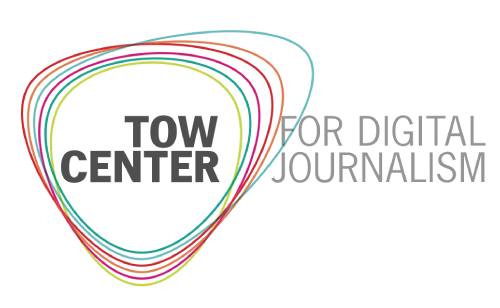Facebook founder Mark Zuckerberg has hit a rough patch in his quest to prove to the world that his company is a technology platform rather than an editorially driven, sentient publisher of the world’s self-expression, which carries a social responsibility beyond its next earnings call.
First came the removal of the Pulitzer Prize-winning photograph by Nick Ut of a girl fleeing napalm in Vietnam, posted on the page of a Norwegian journalist. The editor of Aftenposten, whose journalist posted the picture, all Norwegian news organizations, and eventually the Norwegian government itself expressed dismay at the inability of the social platform to consider historical importance and context. Facebook apologized and restored the photo.
Then last week, two more small publicity fires engulfed the social media company, created by the friction of its dominant market position rubbing up against the expectations of the real world. Although it is not surprising that a social platform with 1.7 billion users is experiencing some difficulty, the mounting issues where there have been significant “mistakes” on the part of the company are amounting to a crisis in transparency. In addition, all of them revolve around Facebook’s conflicted relationship with journalists or the publishers who employ them, feeding the suspicion among media companies that the social network is a less-than-ambivalent partner.
Last week, The Wall Street Journal reported that Facebook had overestimated the amount of time people spent viewing videos on the platform. Not by a little, but by a lot: between 60 percent and 80 percent for two years. If one needed any more proof that Facebook really does shape the news industry, the reaction to its video counting problem ought to serve as conclusive evidence. Given that metrics for video were only introduced in the summer of 2014, this means that this is not so much a glitch as a fundamental error.
The advertising industry, frustrated for years by the lack of transparency at Facebook, once again called for the company to open up its platform to third-party measurement. Sir Martin Sorrell, chief executive of the world’s largest advertising company WPP, told Bloomberg, “We have also been calling for a long time for media owners like Facebook and Google not to mark their own homework.”
At one time measurement errors would have been of no concern to a newsroom. If bulk sales of a newspaper were misstated or daytime television quotas not filled, the pain rarely reached beyond the sales floor. Now media organizations are ranked on their ability to pivot toward new formats and revenue sources with decisive speed. Everyone, it seems–from Tronc, the unfortunately named new vehicle for the Tribune company, to BuzzFeed, the world’s most revered digital property–has reorganized around making more video recently. Last April, Mashable laid off a large number of newsroom journalists in order to increase its video output, particularly on social platforms.
Facebook is not the only driving force in video adoption but it has been boosting the format heavily. In an earnings call as recently as July, Zuckerberg said: “We’re particularly pleased with our progress in video as we move towards a world where video is at the heart of all our services.” One might cruelly remark that you would be pretty pleased with progress if its engagement statistics were routinely stated as almost double their actual number.
News organizations that flock to video are doing so for two reasons. One is that they are told to by advertisers, and the second is that they believe this is where the audiences, and particularly young audiences, are to be had. Both of these assertions rely on the ability to know that this is the case through some kind of reliable metric. Increasingly those metrics are not in the control of news organization but of the third party platforms such as Facebook, or YouTube, or Snapchat. Each platform gives a varying degree of access to that data.
While the “glitch” over advertising revenues gained more attention in the U.S. media, the more intractable problems for Facebook arose from its perceived involvement in the most heated areas of geopolitics.
Facebook was accused on Friday of blocking the accounts of several Palestinian journalists, from the Shehab News Agency and Quds News Network. Facebook later apologized and said that blocking the accounts had been a “mistake” after restoring access to all but one account. Al Jazeera, however, carried a piece on Monday detailing the complaints of journalists and activists who feel that, following meetings with the Israeli government, Facebook is biased against Palestinians posting on the site as arrests for incitement have soared.
Facebook is finding itself under almost constant pressure to be more transparent, despite the fact that by the standards of some legacy media it is the model of openness. One of the fundamental problems is that the platform has been almost too successful at persuading the world to publish on its portal. The Aftenposten editor-in-chief, Espen Egil Hansen, told Vice’s technology site Motherboard that his frustration and “Dear Mark” letter to Zuckerberg were borne out of a frustration with Facebook’s power as a democratic institution but its reluctance to discuss that power.
“It’s about Facebook’s role. Being as large as they are now, being the most important distributor of the news in the world today, they never—or very rarely—participate in the debate about that side of Facebook. It’s been a growing concern.” Hansen said, adding “by far, [Facebook] is the most important carrier of news today, and it is editing at least in two ways. Every post you see on your feed is there for a reason; it’s not neutral at all, it’s an algorithm that decides.”
Internally at Facebook there are intense discussions about how to handle the role that the company is being ascribed with, despite its persistent public message that it is “a technology company.”
Facebook already has statements about its values dotted around its site, even in relation to the News Feed. It is actively campaigning to promote “better speech” over hate speech in a coordinated international campaign that started in Europe to combat the rhetoric of the far right. Facebook is being taken somewhere it never wanted to go–into being the underpinning framework of a free press. The weakened news institutions that have seen advertising revenue drain into more efficient systems are now relying more heavily on Facebook to provide costly parts of the publishing business such as advertising sales and new publishing tools. Newsrooms reconfigure around what Facebook says it wants, even if this turns out to be a fruitless pursuit.
For Facebook’s part, it is being redefined by external commentary. This ought to make the company nervous. Executives ought to look carefully at a very different organization, the BBC, Britain’s public service broadcaster, to understand what happens when a company becomes culturally significant but doesn’t adjust its accountability to meet public expectations. All the BBC’s existential crises have stemmed in one way or another from decisions about programming: whether to air a critical piece about a pedophile anchor, an incautious description of a government document relating to the pursuit of war in Iraq during a radio show, a stupid on-air prank phone call by two ebullient presenters.
Like the BBC, which also started out with an engineering mission, Facebook cannot see publishing decisions–whoever takes them–made on its platform as separate from its corporate health and reputation. They are the same thing.




